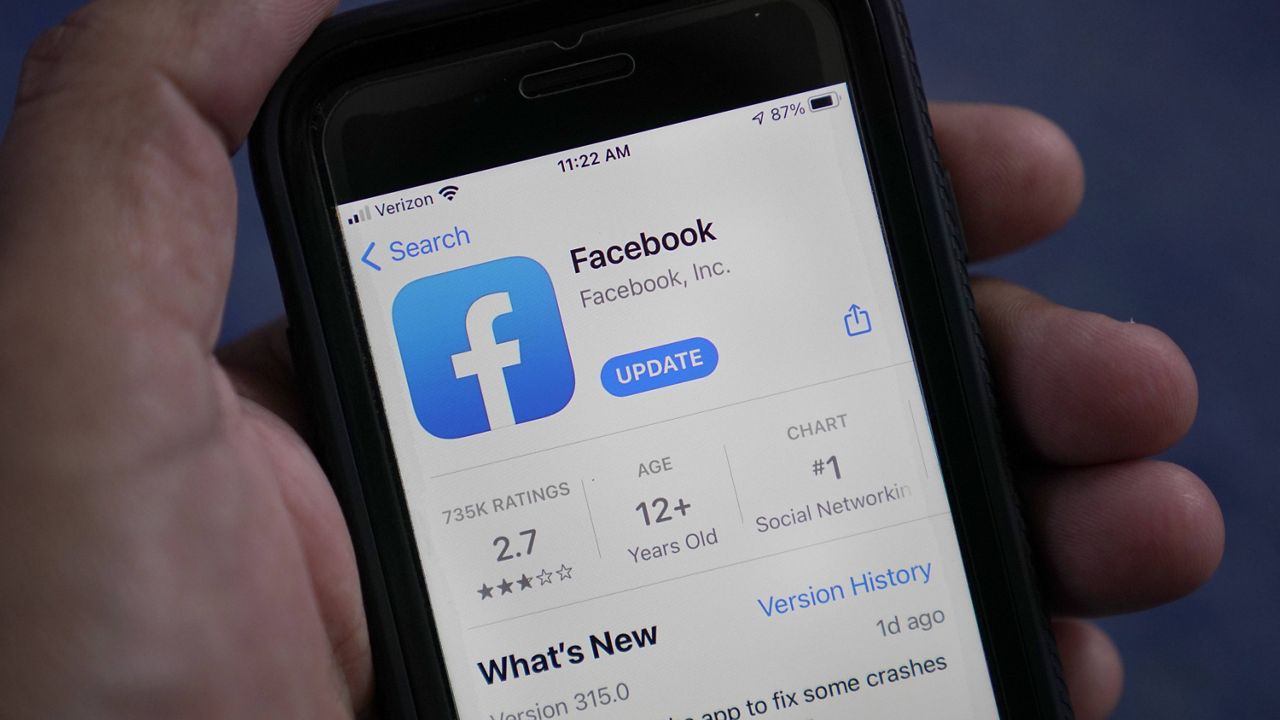Facebook, along with its popular photo-sharing app Instagram and messaging platform WhatsApp, experienced widespread outages for several hours on Monday. Service began to come back late Monday.
Facebook’s internal systems used by employees also went down. The company said late Monday that “the root cause of this outage was a faulty configuration change” and that there is “no evidence that user data was compromised as a result” of the outage.
The company apologized and said it is working to understand more about the cause, which began around 11:40 a.m. Eastern Monday.
"To the huge community of people and businesses around the world who depend on us: we're sorry," the company wrote in a statement earlier Monday evening. "We’ve been working hard to restore access to our apps and services and are happy to report they are coming back online now. Thank you for bearing with us."
There was no evidence as of Monday afternoon that malicious activity was involved. Matthew Prince, CEO of the internet infrastructure provider Cloudflare, tweeted that “nothing we’re seeing related to the Facebook services outage suggests it was an attack.” Prince said the most likely explanation was that Facebook mistakenly knocked itself off the internet during maintenance.
Facebook did not respond to messages for comment about the attack or the possibility of malicious activity.
While much of Facebook’s workforce is still working remotely, there were reports that employees at work on the company’s Menlo Park, California, campus had trouble entering buildings because the outage had rendered their security badges useless.
But the impact was far worse for multitudes of Facebook’s nearly 3 billion users, showing just how much the world has come to rely on it and its properties — to run businesses, connect with online communities, log on to multiple other websites and even order food.
It also showed that despite the presence of Twitter, Telegram, Signal, TikTok, Snapchat and a bevy of other platforms, nothing can easily replace the social network that over the past 17 years has effectively evolved into critical infrastructure. The outage came the same day Facebook asked a federal judge that that a revised antitrust complaint against it by the Federal Trade Commission be dismissed because it faces vigorous competition from other services.
There are certainly online services for posting selfies, connecting with fans or reaching out to elected officials, but those who rely on Facebook to run their business or communicate with friends and family in far-flung places saw this as little consolation.
"We’re aware that some people are having trouble accessing our apps and products," Facebook spokesperson Andy Stone wrote on Twitter earlier Monday. "We’re working to get things back to normal as quickly as possible, and we apologize for any inconvenience."
Adam Mosseri, who heads Instagram, wrote that Monday "does feel like a snow day."
"Instagram and friends are having a little bit of a hard time right now, and you may be having issues using them," Instagram's comms team wrote on Twitter. "Bear with us, we’re on it!"
Twitter's official account took to its platform to seemingly welcome the influx of people from Facebook and Instagram, writing "hello literally everyone."
The outage began around 11:45 ET. While it is normal for websites and apps to suffer outages, one on a global scale is rare, as are those that last multiple hours.
Users reported being unable to access Facebook in California, New York and in parts of Europe.
Facebook is going through a major crisis after the whistleblower who was the source of The Wall Street Journal’s series of stories exposing the company’s awareness of internal research into the negative effects of its products and decisions went public on “60 Minutes” on Sunday.
Frances Haugen was identified in a “60 Minutes” interview Sunday as the woman who anonymously filed complaints with federal law enforcement that the company’s own research shows how it magnifies hate and misinformation, leads to increased polarization and that Instagram, specifically, can harm teenage girls’ mental health.
Facebook has tried to play down the research. Nick Clegg, the company’s vice president of policy and public affairs, wrote in a memo to Facebook employees Friday that “social media has had a big impact on society in recent years, and Facebook is often a place where much of this debate plays out.”
The Associated Press contributed to this report.



